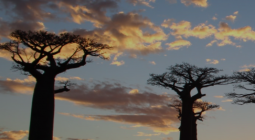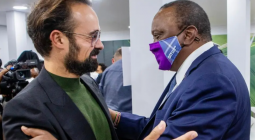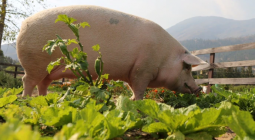Stop talking, start acting, says Africa’s first extreme heat official
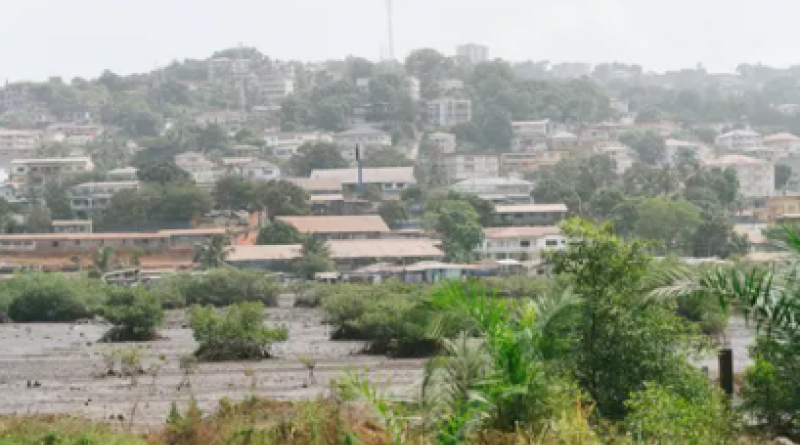
Rising temperatures are already killing people in Sierra Leone’s Freetown, says Eugenia Kargbo, who is planning how best to protect the hundreds of thousands living in informal settlements.
When she was growing up, Eugenia Kargbo could have a leisurely stroll, jog or cycle around the streets of Freetown. But that easy life no longer exists in Sierra Leone’s capital for her two children. The city is so swelteringly hot that children run the constant risk of sunburn or heat rashes if they are outdoors for very long.
“Over the past 10 years, there has been a dramatic change,” says Kargbo, 34, who has been appointed as Freetown’s chief heat officer – the first such post in Africa and only the third globally, after Athens and Miami.
Kargbo remembers when Freetown was a pleasantly cool city. “You [could] do cycling in the afternoon. I remember I used to walk from my school to my house,” she told the Guardian.
“But that has changed – the temperatures keep rising. It’s very difficult to walk around the streets of Freetown in the afternoon hours, you feel very stressed.”
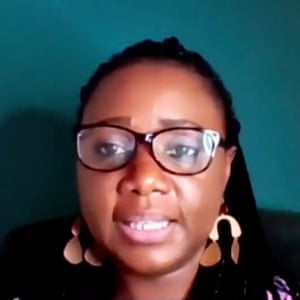
Kargbo’s appointment by Freetown’s mayor, Yvonne Aki-Sawyerr, comes as the coastal city is experiencing rising sea levels, shorter rainy and longer dry seasons, and extreme temperatures.
The west African country has faced increasingly severe flooding and landslides in a country where two-thirds of people depend on farming.
“People are talking about heat and it’s happening,” she says. “It’s killing a lot of people around the world and even in Sierra Leone.
“Extreme heat has led to low crop productivity, and the impact of extreme heat, backed by the 10-year-long civil war that we’ve had, has led to an increase in rural-urban migration.”
As a result, Freetown now has a population of about 1.2 million, 35% of whom live in 74 informal settlements in disaster-prone areas on hillsides and along the coast, in houses made mainly of metal sheets.
“They do not have the resources to build houses made from the appropriate material that would resist the heat, and they do not have the finances to purchase cooling systems,” she says. “These are the most vulnerable people.”
Kargbo’s role is part of an initiative led by the Atlantic Council’s Adrienne Arsht-Rockefeller Foundation Resilience Center to raise awareness of extreme heat risk, improve planning for heatwaves, and implement projects to protect people from heat.
Kathy Baughman McLeod, director of the Resilience Center, says: “Extreme heat is a silent killer responsible for more deaths across the globe than any other climate-related threat.”
Drought has been particularly severe in east Africa, while flooding has been a bigger problem in the west of the continent. “The built environment of Freetown absorbs and later radiates heat, generating an urban heat-island effect that increases the likelihood of heat-related illness and mortality,” according to the Climate and Development Knowledge Network. Heat exacerbates drought during the dry season in Sierra Leone, while vector-borne diseases such as malaria peak in the rainy season.
A huge flood and mudslides in Freetown in 2017 killed an estimated 1,000 people. “Whenever it rains, my heart is in my mouth: I’m wondering, ‘how heavy is it going to be, how long will it go on for, are we going to have flooding?’” Aki-Sawyerr has said.
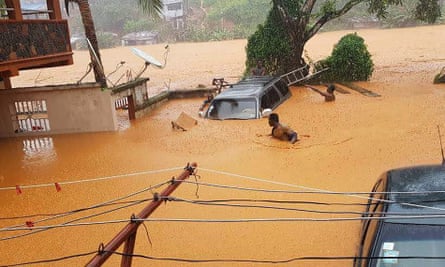
The World Meteorological Organization has warned that African countries’ economies will be hit hard by temperature rises. “For scenarios ranging from a 1C [1.8F] to a 4C [7.2F] increase relative to pre-industrial levels, the continent’s overall GDP is expected to decrease by 2.25% to 12.12%,” it reported. “West, central and east Africa exhibit a higher adverse impact than southern and north Africa.”
Kargbo is working on a comprehensive heat strategy for Freetown, while also trying to raise awareness of the issue. “We need people to understand that extreme heat is a climate hazard and it’s happening because of [this] reason.”
Her department is studying how to provide a disaster insurance scheme for people living in the shantytowns and plans to create more green areas in the city.
“These are open spaces in Freetown where people used to dump waste illegally,” she says. “We are clearing the dump site and we are transforming those areas into green spaces.”
Kargbo first worked in banking before joining Freetown city council, where she has been involved in environmental projects such as the #FreetowntheTreeTown initiative to encourage tree-planting and reduce the deforestation that contributes to flooding and landslides.
Kargbo is clear on her role: “We need to stop talking, and we need to start acting.”
15 November 2021
The Guardian

